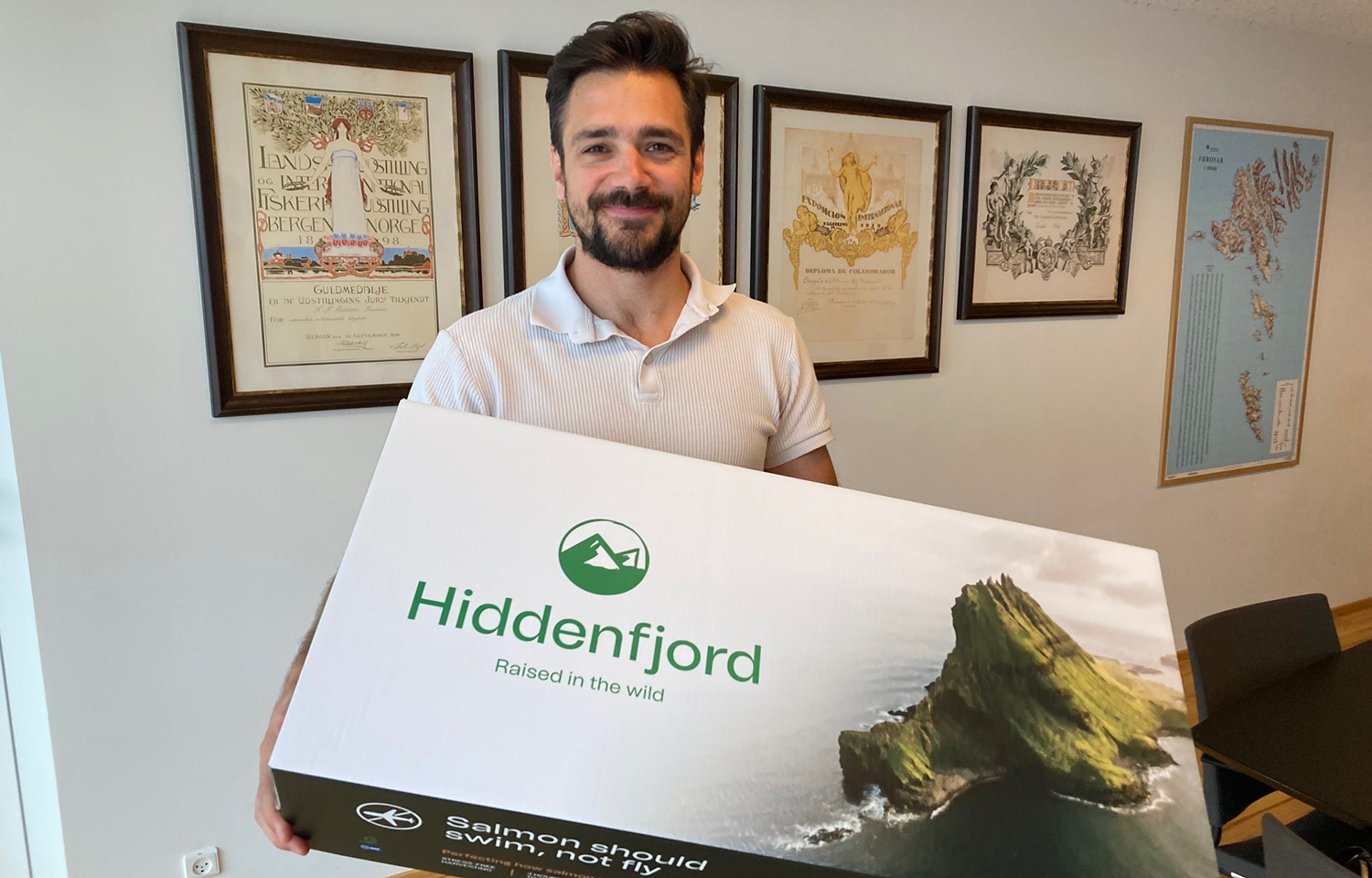Levi Hanssen is the brand and marketing manager for Hiddenfjord, a salmon-farming firm based in Sørvágur, Faroe Islands.
SeafoodSource: Hiddenfjord is known as a family-owned company, which is rare among salmon-farming firms. Can you talk about the company’s history, its size, and its family ties?
Hanssen: Hiddenfjord is a family-owned company founded in 1929. It started as a whitefish-processing company with the purpose of creating jobs in the Faroe Islands. The company began raising salmon in the early 1980s. Today, two brothers, Atli and Regin, own the company, which was founded by their grandfather. They both have children who work in the company. Being privately owned gives us the liberty to have an idealistic focus on sustainability without pressure from shareholders for short-term profits. This liberty is manifested in many of our decisions, such as when it comes to sustainable farming practices, innovation, research and development, and, most recently, our decision to stop all distribution by air freight.
We now have approximately 275 employees. Our farms are located on the west side of the Faroe Islands, which are generally known to have rougher weather conditions. We call the Faroe Islands the home of the Atlantic salmon. It’s a place where salmon have migrated for thousands of years to feed and grow. With steady year-round water temperatures and strong currents, we have the perfect conditions to raise salmon sustainably.
SeafoodSource: Hiddenfjord has become known for its commitment to sustainability. What is the origin of that commitment?
Hanssen: The origin of that commitment is the clear conviction of the owners that we must farm salmon in harmony with nature. Our actions today must ensure good farming conditions for future generations. This conviction is evidenced by how the company has consistently pioneered sustainable farming practices, starting in the 1980s, by locating our pens in more exposed locations. We were also the leading advocate for a critical aquaculture legislation after the ISA (infectious salmon anaemia) crisis in the early 2000s. A 2003 reform changed aquaculture in the Faroe Islands and had a tremendous impact on the industry, paving the way for it to be one of the leading salmon-farming nations in the world today.
SeafoodSource: How much of the company's image do you think is tied to the Faroe Islands?
Hanssen: Many know of salmon from the Faroe Islands. In some cases, people will be more familiar with salmon from the Faroe Islands than with particular brands. Faroese salmon has a very good reputation, so we welcome the fact that the Faroe Islands is tied to our brand. Hiddenfjord is, in fact, the only 100 percent Faroese salmon-farming company.
SeafoodSource: What are the company’s primary goals?
Hanssen: One of our primary goals is to do our very best so that salmon farming in the Faroe Islands can thrive and reach its full potential. Salmon farming accounts for almost half of the country’s exports, making it a very important part of our economy. We have a responsibility and duty to make sure that we fully utilize the opportunities in aquaculture, not just for our own benefit but for the entire country. Another primary goal of ours is to reduce our CO2 emissions. Regardless of how small we are on a global scale, we have a responsibility to play our role in fighting climate change. A third goal of ours is the very modest aim of continuing to produce the world’s best salmon!
SeafoodSource: Hiddenfjord has carved a name out for itself by phasing out the shipment of its salmon via air transport in 2020. How and why was that decision made?
Hanssen: The decision was solely motivated by ...








